Quad-Cities Arts Groups Seek Financial Assistance To Survive
Like most others during this crazy Covid crisis, arts organizations locally and nationally are struggling to find financial help.
Though four individual artists recently got some funding, no Quad-Cities arts groups – all reeling from the financial impact of the coronavirus pandemic — were helped in the first round of $191,000 from the Iowa Department of Cultural Affairs (IDCA).
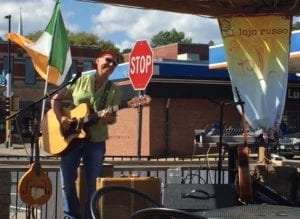
Lojo Russo
The first relief grants this month were limited to artists and very small nonprofits, including Q-C artists Courtney Lyon (dance), Lojo Russo (music), Matthew Terry (visual art) and Pat Bereskin (art and art education).
In all,156 Iowa artists and creative workers each received a $1,000 award to support their artistic career. In addition, 14 Iowa nonprofit arts organizations (with annual budgets between $50,000 and $150,000) each got a $2,500 grant to support their operations. The IDCA received a total of 285 applications in this funding round.
The Iowa Arts & Culture Emergency Relief Fund is to support those most impacted and vulnerable by serving as a bridge between severe financial loss and other state and federal public assistance.
During the next round, grants will be available to any size nonprofit arts and cultural organizations in Iowa or a border community (including the Illinois Q-C). A total of $472,000 will be available and groups can obtain grants up to $20,000. You can apply until May 1 at iowaculture.gov/arts/grants/iowa-arts-emergency-relief-fund.
“Iowa’s creative professionals and cultural organizations have been deeply impacted by the current crisis,” Iowa Department of Cultural Affairs Director Chris Kramer said. “Our industry is incredibly resourceful and resilient, but with so many revenue sources threatened at once, it’s extraordinarily challenging for the creative workforce to navigate.”
Nationwide economic loss $4.5 billion so far
Kramer added, “The economic loss to arts organizations is estimated at over $4.5 billion nationwide. Here in Iowa in a typical year, the creative sector accounts for 2.3 percent of our economy and more than 42,000 jobs.”
Nonprofit arts and culture in the Q-C generated $71.3 million in economic activity in the 2013 fiscal year, according to a study by Americans for the Arts. That included $48 million in income from the 1,906 full-time equivalent employees in the nonprofit arts sector. That year saw 1.8 million in total attendance for those events, according to the survey.
“Artists and community arts organizations have been hit particularly hard by this emergency and are some of the most vulnerable members of our industry right now,” Iowa Arts Council Administrator David Schmitz said. “We want to help Iowa artists and these arts groups bridge the gap, so they can sustain a basic living until audiences and patrons return.”
Davenport-based River Music Experience wasn’t eligible for the first Iowa grants, but will apply for round two, said Tyson Danner, executive director. While he was successful in getting two months worth of payroll funding in the first round of the federal Paycheck Protection Program (PPP), the RME isn’t eligible for National Endowment for the Arts grants, since they’re only offered to recent NEA grant recipients.
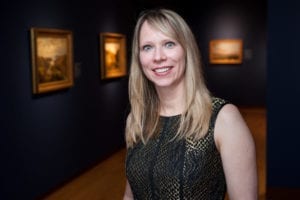
Michelle Hargrave
Davenport’s Figge Art Museum is in the same boat, said executive director Michelle Hargrave, noting she’ll apply for Iowa’s round 2, and other than the PPP, has not received other emergency funding.
Rock Island-based Quad City Arts also got PPP funding, and will be applying to the NEA, said executive director Kevin Maynard.
The $350-billion first round of PPP forgivable loans (for small businesses of 500 workers of less) quickly ran out, leaving many small-business owners without any crisis aid. The program is expected to get an additional $310 billion soon, approved by Congress among the latest $484 billion in pandemic relief.
Rachael Mullins, head of the Putnam Museum & Science Center (which got the PPP and will apply to Iowa), also anticipates opportunities for larger organizations through the National Endowment for the Humanities (NEH) and its state-based affiliate Humanities Iowa.
In a recent survey conducted for Iowa by Americans for the Arts, 255 arts and cultural organizations across the state reported a total financial loss of $2.85 million as of April 7. On average, those organizations lost approximately $11,000 due to closures, cancellations and increased expenses.
Nearly all respondents reported they have canceled performances and other events, affecting an estimated 100,000 audience members and participants. Sixty-two percent of respondents expect the pandemic’s impact on their organization to be “severe” or “very severe.” A quarter of the organizations have reduced staff or payroll, including the Putnam and Figge.
A symphony of challenges
Brian Baxter, executive director of the Quad City Symphony Orchestra, said their PPP two-month loan includes money to pay orchestra musicians. He plans to apply for NEA funding. and for the second round of Iowa Arts Council funding. “That’s re-granting from the NEA, so we’re applying for both of those, but I suspect we won’t get both of them,” Baxter said Saturday.
With Illinois, they’re still waiting on guidance for that one. The orchestra didn’t have to lay off any staff, but it canceled its April concerts, as well as the May 30 screenings of “The Empire Strikes Back” with live music by the QCSO.

Brian Baxter
Of concerts that were canceled, the QCSO has had a lot of donations of tickets back. “There’s refunds being asked too, but the amount of ticket-buyers donating back has been even more generous than I had hoped,” Baxter said.
“We’ll survive; we’re not going away,” he said of whenever post-pandemic is. “Is it gonna be pretty bad? Possibly. I can’t predict the future, but like everybody, we’re kind of in the midst of, what sort contingency plans do we have to pull together?”
“Nobody knows what’s happening in the future, but if we’ve learned anything, we have to be ready for anything,” he said. “What we’re trying to do is the be most agile and responsive that we can be, in light of the pandemic.”
As many theater groups have cancelled their summer season, the QCSO annual Riverfront Pops scheduled for Aug. 15 at Rock Island Arsenal, with a Fleetwood Mac tribute, is uncertain.
“Am I worried about it? Absolutely,” Baxter said. “Do I know what we’re doing with it yet? No. What I’ve been telling our team is, we’ve got a great plan for next year if everything is normal.”
“Will the date or other factors around Riverfront Pops have to change? Possibly,” he said. “At this moment, we’re carrying it on, but it’s a fluid situation.”
Baxter noted it’s unique to be in a bi-state community, with different regulations set by Illinois and Iowa. “The country as a whole has a challenge, in there’s not a set direction from the federal government. It’s like, ‘Do what’s right,’ which puts a lot of pressure on local officials and even local organizations.”
“Even after restrictions are lifted, we have to think about, there’s gonna be a portion of the population that’s not gonna feel comfortable coming out until there’s a vaccine. The vaccine is out of our control, but there are things that we can do in the experience itself to try and help — that can mean a lot of different things, like hand sanitizer and seat spacing.”
“Empire Strikes Back” can’t be rescheduled next year, as “Jurassic Park” in concert is planned for June 5, 2021. The new Living Proof Exhibit opera, “Karkinos” — originally scheduled for May 10 — has been pushed to Feb. 13, 2021.
Once mid-March hit, with the Covid-related closings, ticket sales just stopped, Baxter said. “It was kind of crazy.”
Illinois relief fund offers $4 million
There’s an Arts for Illinois Relief Fund (donated from public and private sources), currently at more than $4 million.
Due to an overwhelming response, the application portals are pausing temporarily — to reopen May 4 — to allow for processing, more fundraising, and more outreach to underrepresented artists and organizations, according to its site, artsforillinois.org. Applicants who have applied before closure, but have not yet been considered, will not need to reapply.
Individual artists – including stage production members, and part-time cultural workers – can apply for one-time grants of $1,500. The grants will be distributed on a lottery basis by nonprofit cultural organization 3Arts.
Non-profit arts and cultural groups of any size can apply for grants of $3,000 to $60,000, based on their financial need.
“The arts and cultural community is deeply embedded in the fabric of Chicago,” Chicago Mayor Lori Lightfoot said recently. “Our cultural institutions – from the one-room artist studio to the 1,500-seat theater – employ artists, back office staff, ushers, curators, ticket takers and others. Many artists supplement their work by providing arts education in our schools. All of these individuals contribute to the city’s vibrant arts and cultural sector, which has been temporarily halted.”
The Covid-19 pandemic has “placed unprecedented strain on the arts and cultural community,” Arts for Illinois said. In a statewide survey by Arts Alliance Illinois assessing potential financial impact of Covid-related closures on the creative sector, 328 respondents estimated that their organizations will lose nearly $85 million in revenue due to a suspension of programs or exhibitions just through the end of April, its site says.
These closures impact 24,228 individual events or performances, 3,581 full-time jobs, 13,235 part-time/contract jobs, and nearly 2.5 million audience members or participants, including programs for students. Many Q-C arts organizations already have cancelled events this entire summer.
Federal arts funding not having local impact
While $2 trillion in initial federal spending went to businesses and individuals hurt by the global coronavirus pandemic, arts organizations worry they may not see much relief.
In late March, Americans for the Arts estimated that nationwide, the arts and culture sector would face a $3.6-billion economic loss just last month, due to closures required by Covid. Agency CEO Robert Lynch said he was grateful for the $300 million Congress approved to support nonprofit cultural groups, but it’s not nearly enough to help their long-term survival.

Tyson Danner
Half that entire amount is devoted to the NEA and NEH, some of which will filter down to the states, said Danner of RME. “They might as well have saved the money and threw it into a different pot, because $150 million for the entire country is just hardly anything.”
The federal support is as follows:
- $75 million for the National Endowment for the Arts
- $75 million for the National Endowment for the Humanities
- $75 million for the Corporation for Public Broadcasting
- $50 million for the Institute of Library and Museum Sciences
- $25 million for the Kennedy Center
- $7.5 million for the Smithsonian Institution
Danner contrasted the U.S. response with Germany, which has a long tradition of state support for arts, dedicating $54 billion in relief.
“They said this is important and we need to do this…European governments are willing to fund arts and culture. Meanwhile, here in America we have to battle every year just to keep any funding going.”
Germany also has seemingly done a better job in controlling Covid deaths — as of April 24, 5,653 Germans died from the disease out of a population of 83 million, compared to over 51,000 American deaths, out of a population of 328 million.
Nearly 2/3 of arts employees out of work
On Friday, Americans for the Arts reported that of more than 10,000 artists and creative worker responses so far to a new Covid-19 survey, 62% have become fully unemployed because of Covid and 95% have experienced income loss.
Yet, most (such as Q-C performers and cultural groups) still express their creativity online and are continuing their mission to entertain and educate. Many are seeking online tips or donations.
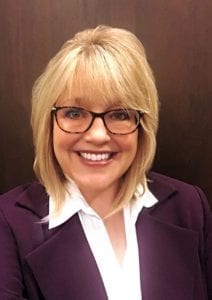
Rachael Mullins
“It is remarkable that in the midst of this crisis creative workers are facing, they’re making art at an extraordinary rate, often for free, because they know their communities need it right now even at their own hardship. Art raises morale, creates community cohesion, and lightens the darkness,” said Robert Lynch, head of Americans for the Arts.
“Even as the creative backbone of the United States is breaking financially, creative workers stand ready to be part of the recovery – often whether they’ll end up being paid to deploy their creativity or not. However, they do indeed need to be paid.”
“A lot of those organizations are in a wait and see,” Mullins of the Putnam said of cultural entities. “We have reached out to find out what that will mean at the local level. We’re waiting to hear what funding opportunities there may be or not. I think most organizations in our community are hoping there are state and federal resources that we can bring into the community, rather than relying on local charitable dollars. We all believe strongly those dollars should be focused on human-service needs.”
“We’re looking into if we’re eligible for support from the NEA,” Hargrave of the Figge said. “If not, we’re hopeful some of that money will trickle down to the states, that we might qualify for some funding from the Iowa Arts Council.”
Laura L. Lott, president/CEO of the American Alliance of Museums, has estimated that nationwide, museums are losing at least $33 million per day because of the pandemic.
“With our allies across the field, AAM delivered a powerful joint letter to Congress with an audacious ask — $4 billion — as well as a universal charitable deduction. Museum advocates sent over 33,000 messages to Congress, many of them personalized. And we were heard.”
The association also collaborated with others in the nonprofit sector to ensure nonprofits, including museums, are eligible for small business loans (with forgiveness provisions) and that the legislation include charitable giving incentives.
Museums sought $4 billion, will get less than $50M
The Institute of Museum and Library Services will get $50 million in federal support, from which the Putnam hopes to benefit.
The Davenport museum and science center had to lay off 22 hourly staff, including its marketing director, visitor services and custodial staff, and Mullins hopes to have most of that staff back when it can re-open.

Michelle Hargrave
“We’ll have to wait and see. As we’ve all learned more about some of the hits to the revenues is that, we may look different when we reopen,” she said. “We may have to restructure a little bit. We don’t know if our community will come back right away.”
“We’re really trying to be conservative as we look towards plans to reopen,” Mullins said. “We may hire staff back on a phased approach, as revenues rebound; it will be a transitional period. We’re hoping our summer camps and our summer traffic, kind of what we’re hoping for, to see our local families and citizens back at the Putnam.”
Hargrave — who just started at the Figge last December, moving from Connecticut — said: “It’s obviously challenging for anyone at this time. I have to say, I’m grateful it didn’t happen the first month I moved here. Everyone has been incredibly supportive.
“The board has been supportive and wonderful, and people within the community and the staff has really stepped up and taken on things they normally wouldn’t be doing. I don’t feel isolated, though I think people are worried about me. I feel very supported.
Like other organizations and artists, the Q-C groups have been seeking donations online and social media.
“We’re cognizant that we’re not supplying basic needs to people in the community. so we certainly don’t want to take away from organizations that are doing that,” Hargrave said. “But like everyone else, we are experiencing financial consequences to being closed.”
Q-C cultural trust works to offer support
The Quad Cities Cultural Trust (QCCT) is working closely with the six major groups it supports, to help survive the crisis. According to its executive director Jen Dobrunz:
“Times like this were exactly why the Cultural Trust was formed. This is a safety net organization, to make sure that the important ingredients to the success of our community and the success of the citizens of our community are here and thriving.”
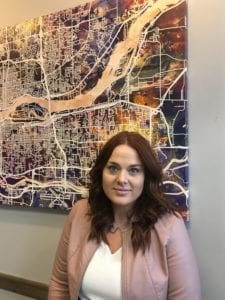
Jen Dobrunz
The trust started in 2007 as an unrestricted funder, to annually support six area cultural organizations – RME, QCSO, Quad City Arts, the Figge, Putnam and Quad City Botanical Center.
Last year was a record-breaking distribution for QCCT, up 21% from the previous year, granting a total of $1.18 million among the groups. Typically, the funds are given out around June 30, but that may change this year.
“We had discussed moving the process up earlier before Covid-19 shook the nation,” Dobrunz said. “We were working on an earlier process. We began discussions with partners on early aid; we’re understanding what those needs right now, so that we can do our best to support them through this shaky time.”
The trust and its partners have been supporting federal legislation for arts and culture, as part of the $2-trillion stimulus bill.
“Every organization – whether it’s a for-profit or not-for-profit – is suffering right now,” the QCCT head said. “In our community, we are seeing our partners pivoting. They are trying to use different media platforms to get their programs out to the community, to try and stay connected to the region, which I applaud them for. But this is uncharted waters for all of us.”
The trust has a campaign to boost its endowment from $25 million to $32 million by the end of 2020, but it’s challenging to raise money now, Dobrunz said.
“This campaign is a marathon; it’s not a sprint. Right now, we are focused on making sure we’re taking care of one another. That this community has what it needs.”
Revealing the true value of arts
The worldwide crisis underscores the vital importance of the arts in people’s lives, Danner said.
“I think it really does remind people why the arts and culture are important. Not just for a TV show to watch on Netflix, or songs to listen to on the radio and online, but the local musicians and local artists that make up our local cultural scene — they don’t have big cash reserves,” he said. “They don’t operate on huge profit margins. They’re barely squeaking by in normal times.

Tyson Danner
“And my fear is that the community at large won’t notice until they’re gone, and all of a sudden we won’t have this rich culture — whether it’s musical or visual arts in the Quad-Cities. And we need that; we need all those small nonprofits and big nonprofits, and the variety of stuff being created, to have a real cultural scene — if we want people to live here and stay here and visit here,” Danner said.
“The landscape hasn’t really changed all that much. There’s a health system crisis going on right now, but that’s always true,” he added. “Before the coronavirus, there were people starving. there were homeless people on the street. here are always what seem more urgent, high priority issues. That’s something we always have to prioritize. But I think everybody should keep in mind that there has to be a way out of it, too. If your passions as a funder or a donor are aligned with a homeless shelter, then that’s where you should give.
“If your passions are aligned with an art gallery, then that’s where you should give. I don’t think donors have to feel bad about not prioritizing the way someone else wants them to.”
RME has seen a boost in donations, without doing any formal campaigns. “A lot of people are facing personal financial struggles,” Danner said. “We’re sensitive to that. But we’ll be ramping up to take part in Birdies for Charity, as I’m sure many nonprofits will. Sooner or later, we’re gonna have to kick it into high gear, to ensure we have the revenue coming into our organization. Because the longer things are shut down for nonprofits, the more important that will be.”



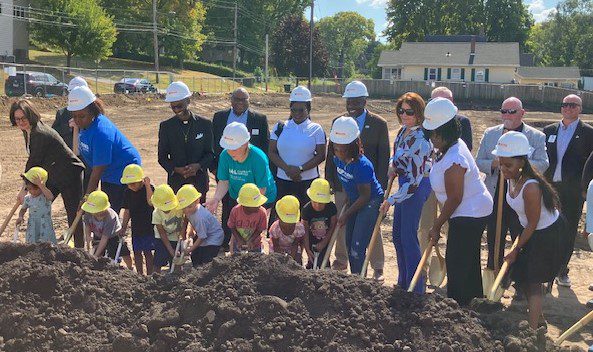
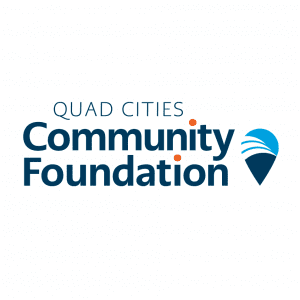
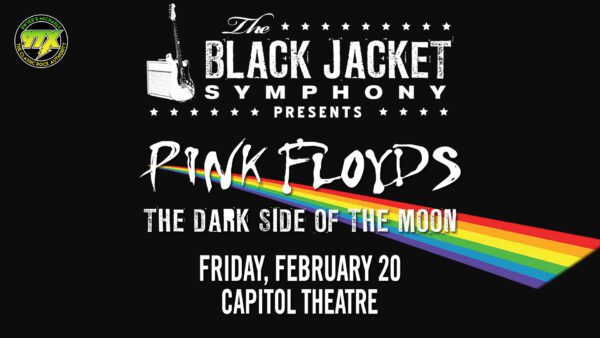







Leave a Reply
You must be logged in to post a comment.